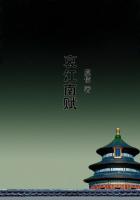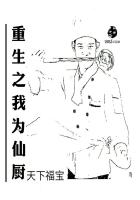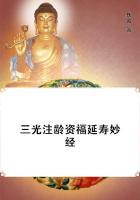For, as has been said, in the practice of fasting, watching and labor, we are not to look upon the works in themselves, not on the days, not on the number, not on the food, but only on the wanton and lustful Adam, that through them he may be cured of his evil appetite.
XXI. From this we can judge how wisely or foolishly some women act when they are with child, and how the sick are to be treated.
For the foolish women cling so firmly to their fasting that they run the risk of great danger to the fruit of their womb and to themselves, rather than not to fast when the others fast. They make a matter of conscience where there is none, and where there is matter of conscience they make none. This is all the fault of the preachers, because they continually prate of fasting, and never point out its true use, limit, fruit, cause and purpose.
So also the sick should be allowed to eat and to drink every day whatever they wish. In brief, where the wantonness of the flesh ceases, there every reason for fasting, watching, laboring, eating this or that, has already ceased, and there no longer is any binding commandment at all.
But then care must be taken, lest out of this ******* there grow a lazy indifference about killing the wantonness of the flesh;for the roguish Adam is exceedingly tricky in looking for permission for himself, and in pleading the ruin of the body or of the mind; so some men jump right in and say it is neither necessary nor commanded to fast or to mortify the flesh, and are ready to eat this and that without fear, just as if they had for a long time had much experience of fasting, although they have never tried it.
No less are we to guard against offending those who, not sufficiently informed, regard it a great sin if we do not fast or eat as they do. These we must kindly instruct, and not haughtily despise, nor eat this or that in despite of them, but we must tell them the reason why it is right to do so, and thus gradually lead them to a correct understanding. But if they are stubborn and will not listen, we must let them alone, and do as we know it is right to do.
XXII. The second form of discipline which we receive at the hands of others, is when men or devils cause us suffering, as when our property is taken, our body sick, and our honor taken away; and everything that may move us to anger, impatience and unrest. For God's work rules in us according to His wisdom, not according to our wisdom, according to His purity and chastity, not according to the wantonness of our flesh; for God's work is wisdom and purity, our work is foolishness and impurity, and these shall rest: so in like manner it should rule in us according to His peace, not our anger, impatience and lack of peace. For peace too is God's work, impatience is the work of our flesh; this shall rest and be dead, that we thus in every way keep a spiritual holiday, let our works stand idle, and let God work in us.
Therefore in order to kill our works and the Adam in us, God heaps many temptations upon us, which move us to anger, many sufferings, which rouse us to impatience, and last of all death and the world's abuse; whereby He seeks nothing else than that He may drive out anger, impatience and lack of peace, and attain to His work, that is, to peace, in us. Thus says Isaiah xxviii, "He does the work of another that He may come to His own work."What does this mean? He sends us suffering and trouble that He may teach us to have patience and peace; He bids us die that He may make us live, until a man, thoroughly trained, becomes so peaceful and quiet that he is not disturbed, whether it go well or ill with him, whether he die or live, be honored or dishonored. There God Himself dwells alone, and there are no works of men. This is rightly keeping and hallowing the day of rest; then a man does not guide himself, then he desires nothing for himself, then nothing troubles him; but God Himself leads him, there is naught but godly pleasure, joy and peace with all other works and virtues.
XXIII. These works He considers so great that He commands us not only to keep the day of rest, but also to hallow it or regard it as holy, whereby He declares that there are no more precious things than suffering, dying, and all manner of misfortune. For they are holy and sanctify a man from his works to God's works, just as a church is consecrated from natural works to the worship of God. Therefore a man shall also recognise them as holy things, be glad and thank God when they come upon him. For when they come they make him holy, so that he fulfils this Commandment and is saved, redeemed from all his sinful works. Thus says David:
"Precious in the sight of the Lord is the death of His saints."In order to strengthen us thereto He has not only commanded us to keep such a rest (for nature is very unwilling to die and to suffer, and it is a bitter day of rest for it to cease from its works and be dead); but He has also comforted us in the Scriptures with many words and told us, Psalm xci, "I will be with him in all his trouble, and will deliver him." Likewise Psalm xxxiv: "The Lord is nigh unto all them that suffer, and will help them."As if this were not enough, He has given us a powerful, strong example of it, His only, dear Son, Jesus Christ, our Lord, who on the Sabbath lay in the tomb the entire day of rest, free from all His works, and was the first to fulfil this Commandment, although He needed it not for Himself, but only for our comfort, that we also in all suffering and death should be quiet and have peace. Since, as Christ was raised up after His rest and henceforth lives only in God and God in Him, so also shall we by the death of our Adam, which is perfectly accomplished only through natural death and burial, be lifted up into God, that God may live and work in us forever. Lo! these are the three parts of man: reason, desire, aversion; in which all his works are done. These, therefore, must be slain by these three exercises, God's governance, our self-mortification, the hurt done to us by others; and so they must spiritually rest before God, and give Him room for His works.















